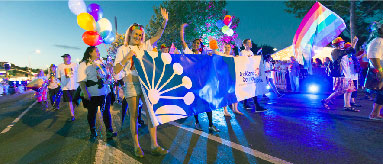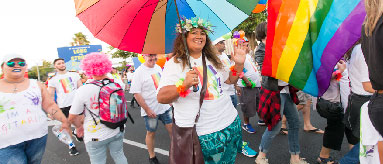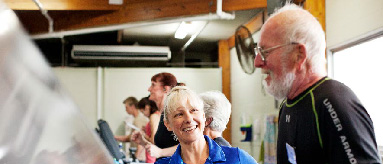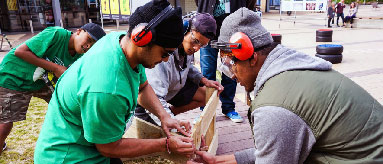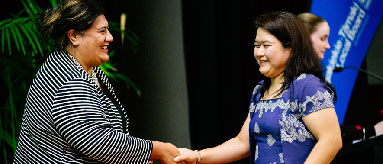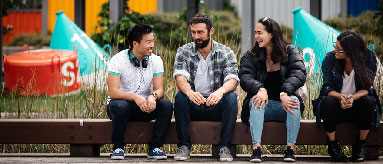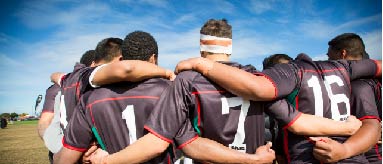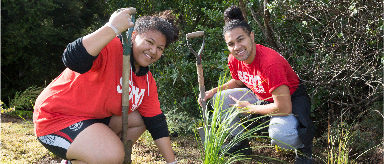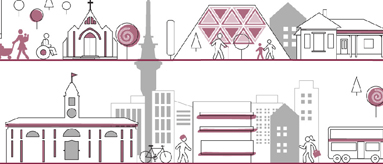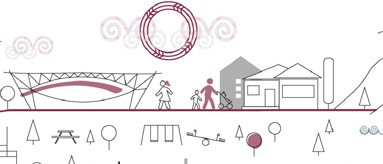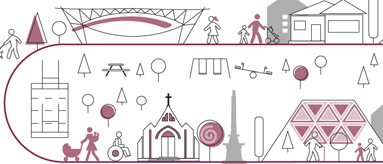Focus Area 4
Rohe arotahinga 4: Whakamanwa ka whakarato ko Te Tiriti o Waitangi te tūāpapa tikanga rua ahurea whānui mō Tāmaki Makaurau Value and provide for Te Tiriti o Waitangi/the Treaty of Waitangi as the bicultural foundation for an intercultural Auckland
Te Tiriti o Waitangi/the Treaty of Waitangi is the founding document of New Zealand. It recognises that Māori Indigenous people of Aotearoa New Zealand. Māori incorporates mana whenua and mataawaka., as tangata whenua, The indigenous people of the land. belong in Aotearoa North Island - now used as the Māori name for New Zealand..
The relationship between Māori and the Crown is guided by te Tiriti o Waitangi/the Treaty of Waitangi. It provides the basis for working together in partnership and in good faith for mutual benefit.
It also recognises the desire to approach future New Zealand settlement and the governance of all future New Zealanders in an agreed way.
Te Tiriti recognises both the rights of Māori as indigenous people and the rights of all who have subsequently settled here. As such, the Treaty provides the basis for all people to belong in Aotearoa. Find out more about your rights and the Treaty of Waitangi at The Human Rights Commission (PDF 114KB).
It recognises the special place of Māori as tangata whenua by recognising and protecting rangatiratanga There are two components: 1. chieftainship, right to exercise authority, chiefly autonomy, chiefly authority, ownership, leadership of a social group, domain of the rangatira, noble birth, attributes of a chief. 2. kingdom, realm, sovereignty, principality, self-determination, self-management - connotations extending the original meaning of the word resulting from Bible and Treaty of Waitangi translations. and the relationship between Māori, the government and future citizens.
Valuing and better understanding the Treaty helps us to engage with te ao Māori The Māori world, or the Māori world view. and contributes to our shared identity and sense of belonging.

Auckland’s Māori identity and vibrant Māori culture.
Auckland is diverse and multicultural with different cultural or ethnic groups. It embraces the place of whānau Extended family, family group, a familiar term of address to a number of people. Also the primary economic unit of traditional Māori society., hapū A number of whānau sharing descent from a common ancestor; kinship group, sub-tribe. and iwi A number of hapū (section of a tribe) related through a common ancestor., as the indigenous people. Auckland's Māori identity and vibrant Māori culture are important in creating a sense of belonging, cohesion and identity for everyone who calls Auckland home.
To be Māori is to have a tūrangawaewae Ancestral standing place., a place of strength and belonging, a place to stand. The history and culture of mana whenua Hapū and iwi with ancestral relationships to certain areas in Tāmaki Makaurau where they exercise customary authority. helped establish, shape and define today's Auckland and is an important part of what it means to belong in Auckland.
Mana whenua obligations to manaaki Generosity; support, provide hospitality and care of others. manuhiri Visitor, guest. (extend hospitality and care for others) and tikanga Correct procedure, custom, lore, method, way, plan, practice, convention, protocol. The customary system of values and practices that have developed over time and are deeply embedded in the social context. Māori can help to connect all cultures and ensure that Auckland is a welcoming place for all.
Whanaungatanga Relationship, kinship, sense of family connection. A relationship through shared experiences and working together which provides people with a sense of belonging. can provide all Aucklanders with a sense of belonging and a strong basis for an intercultural Auckland. Interculturalism is an approach to fostering social inclusion that has been shown to have a positive impact on economic development and social cohesion. For example, all Aucklanders are invited to participate and experience Māori culture on Waitangi Day and during Matariki Matariki is the Māori name for the star cluster Pleiades. events.
Providing opportunities for mana whenua to shape Auckland's Māori identity and to share Auckland's Māori cultural heritage with other Aucklanders can promote wider understanding and strengthens our sense of belonging and pride as Aucklanders.
It is important to the future of Tāmaki Makaurau that all Aucklanders understand and can confidently engage with Māori culture. For recent migrants, learning about their new home includes learning about New Zealand's history, the role of the Treaty and traditions. Both existing Aucklanders and new residents can connect with Māori through, for example, experiencing a pōwhiri Invitation, formal Māori welcome ceremony., engaging in customary Māori activities or attending a hui Verb, to assemble or meet. Noun, a gathering or meeting. at a local marae The enclosed space in front of a wharenui (meeting house) where people gather..
We can all take part in Māori language and culture. Doing so helps to form part of our identity as Aucklanders. Celebrating Auckland's Māori identity recognises our history and underpins how we welcome people from diverse backgrounds and cultures.
Building strong positive relationships based on understanding and mutual respect will help strengthen Auckland's bicultural foundation.
How this can be done
We can do this by:
- promoting understanding of the history of Tāmaki Makaurau, the Treaty and what this means for Aucklanders in the future
- acknowledging and better understanding the importance of te ao Māori
- working with and supporting Māori to connect with all Aucklanders
- recognising and supporting the role of mana whenua to manaaki manuhiri in a way that expresses their cultural identity
- fostering engagement of all Aucklanders with te reo Māori as a means of accessing and understanding Māori culture
- encouraging all Aucklanders to engage and interact positively with Māori and Māori culture, values and ways of doing things to help build intercultural understanding. For example, through incorporating Māori urban design elements in public places and spaces.

